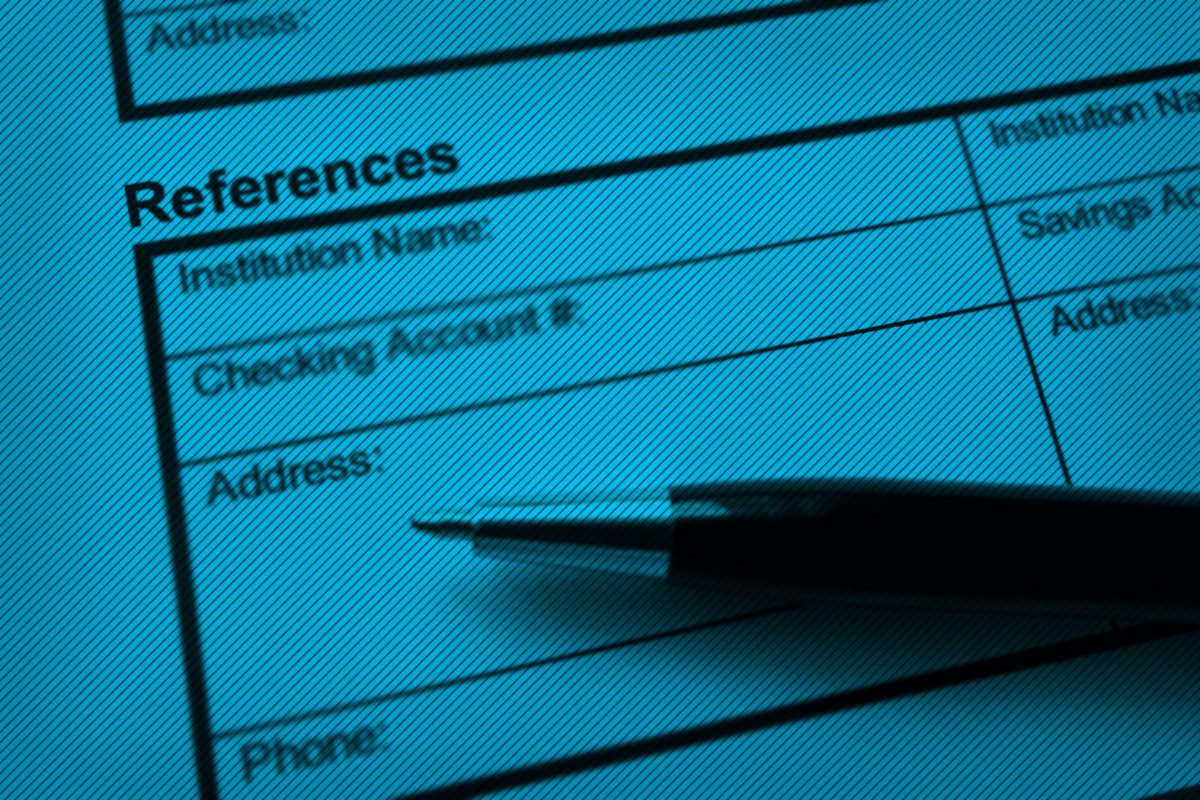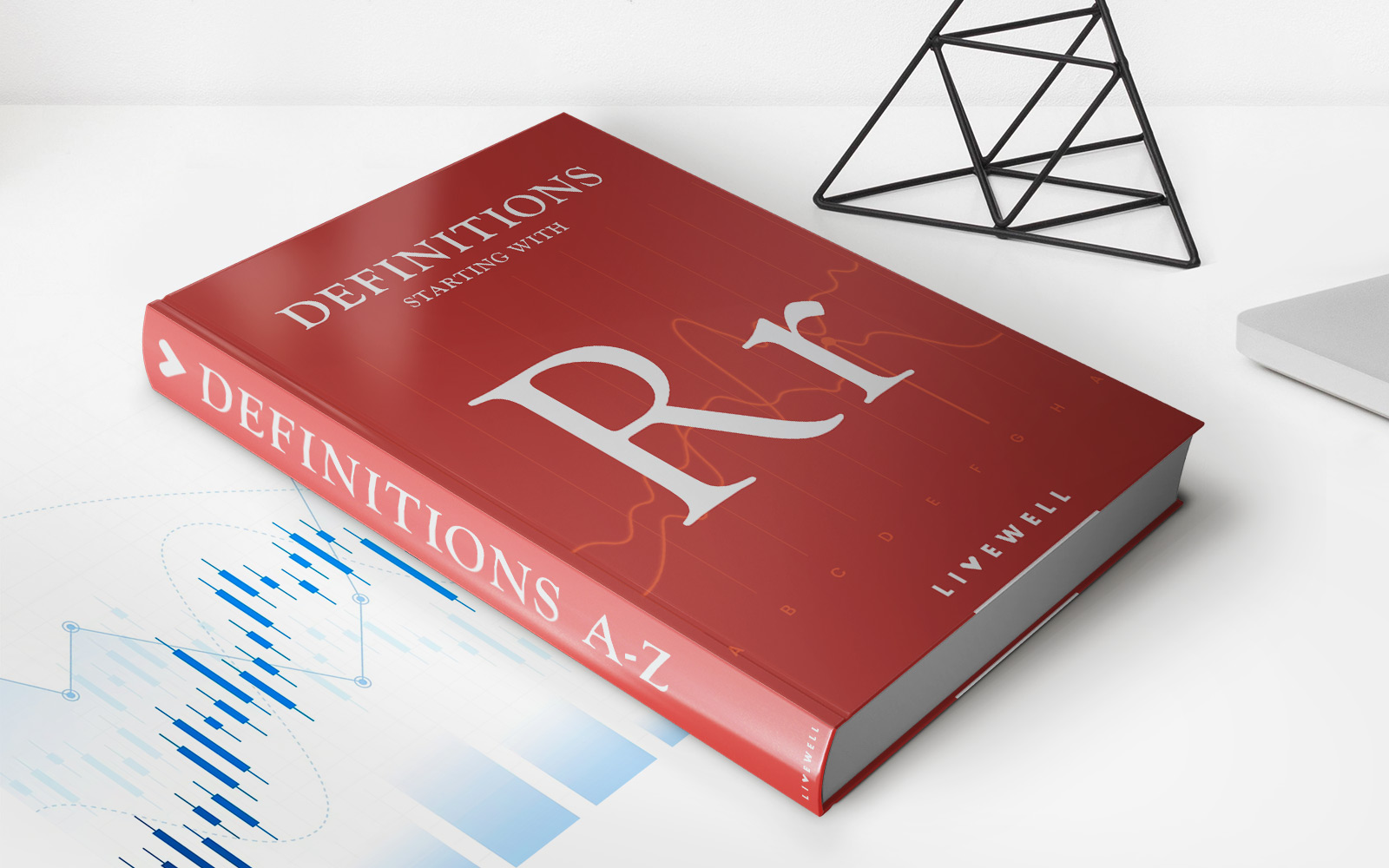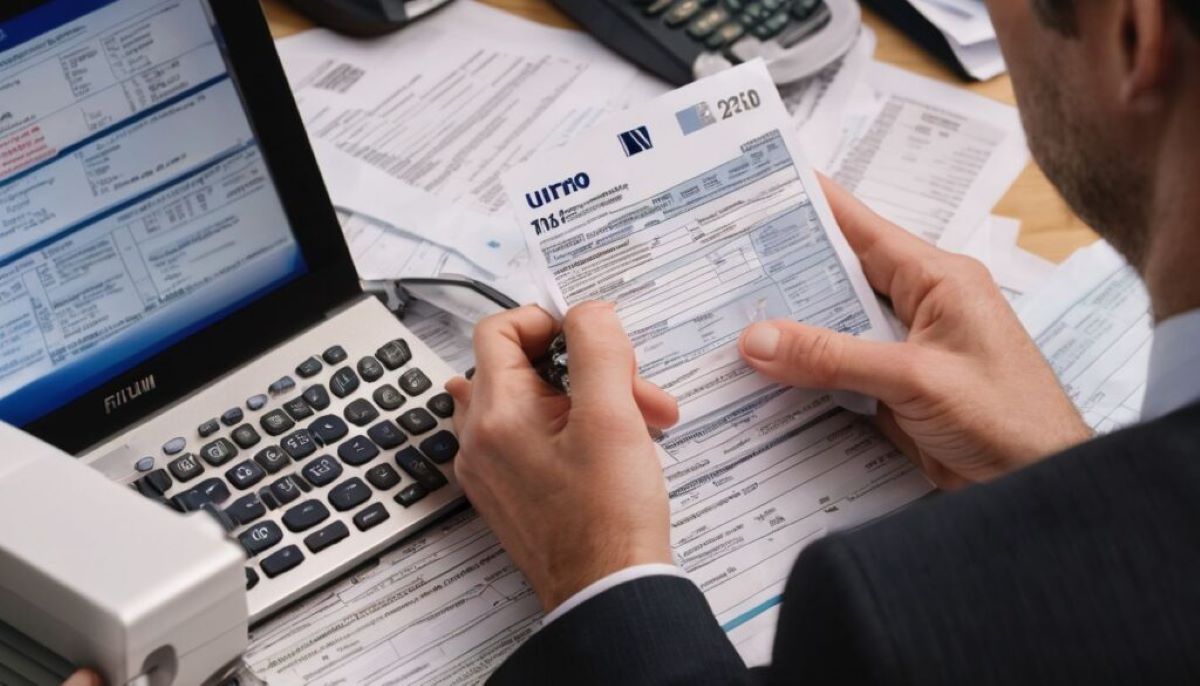Home>Finance>What Is A Credit Reference For A Rental Application


Finance
What Is A Credit Reference For A Rental Application
Published: January 10, 2024
Learn about credit references and how they can impact your rental application. Discover the importance of financial history and how it relates to renting a property.
(Many of the links in this article redirect to a specific reviewed product. Your purchase of these products through affiliate links helps to generate commission for LiveWell, at no extra cost. Learn more)
Table of Contents
- Introduction
- Understanding Credit References
- Importance of Credit References for Rental Applications
- What Is a Credit Reference?
- Types of Credit References
- Providing a Credit Reference for a Rental Application
- Tips for Obtaining a Strong Credit Reference
- Common Questions about Credit References for Rental Applications
- Conclusion
Introduction
Applying for a rental property can be an exciting yet nerve-wracking process. Whether you’re a first-time renter or a seasoned tenant, one of the essential factors that landlords consider when reviewing your application is your creditworthiness. Landlords often request a credit reference to evaluate your financial responsibility and ability to pay rent on time. Understanding what a credit reference is and how it impacts your rental application is crucial for a smooth and successful renting experience.
A credit reference is a documentation or statement that provides information about your credit history, payment habits, and financial stability. It serves as a testament to your ability to manage debt and fulfill financial obligations. Landlords use credit references to assess the level of risk associated with renting their property to a potential tenant. A positive credit reference can significantly increase your chances of being approved for the rental property, while a negative credit reference may raise concerns for the landlord.
Importance of Credit References for Rental Applications:
Landlords rely on credit references to make informed decisions about potential tenants. Here are a few reasons why credit references are crucial for rental applications:
- Assessing Financial Responsibility: Credit references provide insights into your financial behavior, including your credit utilization, payment history, and any outstanding debts. Landlords want to ensure that you are responsible with your finances and are likely to pay rent on time.
- Predicting Risk: By reviewing your credit references, landlords can assess the level of risk associated with renting to you. A strong credit reference indicates that you are reliable and financially stable, reducing the risk of payment defaults or late rent payments.
- Determining Rental Terms: Your credit reference can influence the rental terms offered by the landlord. A positive credit reference may lead to more favorable terms, such as a lower security deposit or a shorter lease agreement.
Understanding Credit References
Before diving into the intricacies of credit references for rental applications, it’s important to have a solid understanding of what a credit reference entails. A credit reference provides a snapshot of your credit history and financial standing, which helps landlords assess your creditworthiness.
A credit reference typically includes the following information:
- Credit Score: Your credit score is a numerical representation of your creditworthiness. It is calculated based on factors such as your payment history, credit utilization, length of credit history, types of credit accounts, and new credit applications.
- Payment History: This section highlights your track record of paying debts and bills on time. It reflects any late payments, defaults, or delinquencies, which can have a significant impact on your creditworthiness.
- Outstanding Debts: The credit reference may provide information about your outstanding debts, including credit card balances, loans, and other financial obligations. The amount of debt you carry can indicate your ability to handle additional financial responsibilities like rent.
- Credit Utilization: This factor reveals the percentage of your available credit that you are currently using. A high credit utilization ratio may suggest financial strain and could raise concerns for landlords.
- Public Records: Instances of bankruptcies, tax liens, foreclosures, or court judgments may be included in the credit reference and can negatively impact your creditworthiness.
It’s important to note that credit references can vary depending on the credit reporting agency or institution providing the information. Different agencies may have access to different data sources, resulting in slightly different credit reference reports.
Understanding the components of a credit reference is crucial when it comes to assessing your own creditworthiness. Regularly reviewing your credit report and addressing any discrepancies or negative information can help improve your chances of obtaining a positive credit reference for future rental applications.
Importance of Credit References for Rental Applications
Credit references play a vital role in rental applications as they provide crucial insights into your financial stability and responsibility. Landlords use credit references to assess the level of risk associated with renting their property to a potential tenant. Here are some key reasons why credit references are important for rental applications:
- Assessing Financial Responsibility: Credit references provide landlords with information about your financial behavior and past payment history. By reviewing your credit references, landlords can gauge your ability to manage debt and fulfill financial obligations. They want to ensure that you are responsible with your finances and are likely to pay rent on time.
- Establishing Trust: A positive credit reference establishes trust between you and the landlord. Landlords want to feel confident that you have a strong financial track record and are unlikely to default on rent payments. This trust is essential for maintaining a good landlord-tenant relationship throughout the rental period.
- Predicting Risk: Credit references allow landlords to assess the level of risk associated with renting to you. They can evaluate your credit score, payment history, and outstanding debts to determine the likelihood of late payments or defaults. A strong credit reference with a good credit score and positive payment history reduces the risk for the landlord, increasing your chances of being approved for the rental property.
- Determining Rental Terms: Your credit reference can also influence the rental terms offered by the landlord. A positive credit reference may lead to more favorable terms, such as a lower security deposit or a shorter lease agreement. Landlords are more likely to negotiate rental terms with tenants who have a strong credit reference, as it indicates a lower risk of financial issues during the tenancy.
- Competing in a Competitive Rental Market: In competitive rental markets, where there may be several applicants vying for the same property, a strong credit reference can give you an edge. Landlords often prioritize tenants with positive credit references as they are seen as less of a risk. Having a solid credit reference increases your chances of being chosen over other applicants.
Overall, credit references are crucial for rental applications as they provide landlords with valuable information about your financial history and reliability. A positive credit reference can significantly increase your chances of being approved for a rental property and may even lead to more favorable rental terms. It’s important to maintain good credit and address any issues that may negatively impact your credit references to enhance your chances of success in the rental market.
What Is a Credit Reference?
A credit reference is a documentation or statement that provides information about a person’s credit history, payment habits, and financial stability. It serves as a tool for assessing an individual’s creditworthiness and is commonly used in various financial transactions and applications, including rental applications.
When it comes to rental applications, a credit reference serves as a means for landlords to evaluate the financial responsibility and ability of a potential tenant to pay rent on time. It provides them with important insights into the applicant’s creditworthiness and helps determine the level of risk associated with renting their property.
A credit reference typically includes the following information:
- Credit Score: The credit score is a numerical representation of an individual’s creditworthiness, usually ranging from 300 to 850. It is calculated based on factors such as payment history, credit utilization, length of credit history, types of credit accounts, and new credit applications.
- Payment History: This section provides details about the individual’s track record of paying debts and bills on time. It reflects any late payments, defaults, or delinquencies that may impact their creditworthiness.
- Outstanding Debts: The credit reference may include information about the individual’s outstanding debts, such as credit card balances, loans, and other financial obligations. The amount of debt a person carries can indicate their ability to handle additional financial responsibilities like rent.
- Public Records: Instances of bankruptcies, tax liens, foreclosures, or court judgments may be included in the credit reference, providing a comprehensive picture of an individual’s financial history.
- Credit Inquiries: This section reveals any recent applications for new credit. Multiple inquiries within a short period of time may raise concerns for landlords, as it could indicate financial instability or difficulty in managing credit.
It’s important to note that credit references are typically obtained from credit reporting agencies, such as Equifax, Experian, or TransUnion, which collect and maintain credit information on individuals based on their financial activities and interactions with lenders and creditors.
By reviewing an applicant’s credit reference, landlords can assess their creditworthiness and make informed decisions about whether to approve their rental application. A positive credit reference with a good credit score and responsible payment history increases the likelihood of being approved for a rental property, while a negative credit reference may raise concerns for landlords.
Types of Credit References
When it comes to credit references for rental applications, there are several types that landlords may consider. These credit references provide different perspectives on an applicant’s creditworthiness and financial history. Here are some common types of credit references:
- Bank Statements: Bank statements are a valuable credit reference that showcases an individual’s financial stability and payment habits. Landlords may request bank statements to verify income, review account balances, and assess the regularity of deposits and withdrawals.
- Credit Reports: Credit reports are perhaps the most widely used credit reference. They provide a comprehensive overview of a person’s credit history, including credit accounts, payment history, outstanding debts, and public records. Landlords typically request credit reports from credit reporting agencies to evaluate an applicant’s creditworthiness.
- Previous Rental History: A prior rental history serves as a credit reference, especially for individuals who have rented in the past. Landlords may contact previous landlords or property managers to verify payment history, tenancy details, and any previous rental-related issues.
- Employment Verification: Employment verification can be considered a credit reference as it demonstrates a stable income source and the ability to meet financial obligations. Landlords may contact employers or ask for employment verification letters to confirm an applicant’s income and employment status.
- Character References: While not directly related to creditworthiness, character references can still be valuable in some rental applications. These references generally come from personal acquaintances, such as colleagues, neighbors, or family friends, who can vouch for an applicant’s character, reliability, and trustworthiness.
Each type of credit reference provides unique insights into an applicant’s financial history and reliability. Landlords may request one or more of these references to establish a comprehensive view of the applicant’s creditworthiness and ability to fulfill rental obligations.
It’s important for potential tenants to be prepared to provide these credit references when applying for a rental property. Having all necessary documentation ready and ensuring that the references reflect positively on one’s financial responsibility can significantly enhance the chances of a successful rental application.
Providing a Credit Reference for a Rental Application
When applying for a rental property, it’s essential to be prepared to provide a credit reference to the landlord or property manager. This reference serves as evidence of your creditworthiness and helps the landlord assess your financial stability. Here are some key steps to follow when providing a credit reference for a rental application:
- Obtain a Credit Report: Start by obtaining a copy of your credit report from a reputable credit reporting agency. Review the report to ensure its accuracy and address any errors or discrepancies that may affect your creditworthiness.
- Prepare Supporting Documents: Gather any supporting documents that may strengthen your credit reference, such as bank statements, pay stubs, or employment verification letters. These documents provide additional evidence of your financial stability and ability to make rent payments.
- Provide Contact Information: When completing the rental application, accurately provide the contact information for the credit reporting agency and any other references the landlord may require. Incorrect or outdated contact information may delay the verification process and potentially harm your chances of approval.
- Follow Application Instructions: Ensure that you carefully follow the instructions provided by the landlord or property manager regarding credit references. This may include submitting the credit report directly or providing permission for the landlord to obtain it on your behalf.
- Communicate Additional Information: If there are any specific details or circumstances that may affect your creditworthiness, such as a past financial hardship, it can be beneficial to communicate this information to the landlord. This allows you to provide context and explain any factors that may have influenced your credit history.
It’s crucial to remember that providing a credit reference is an important step in the rental application process. Taking the time to gather and organize the necessary documents and ensuring the accuracy of your credit report can significantly improve your chances of a successful application.
Additionally, be prepared to explain any negative information on your credit report during the application process. By being honest and transparent, you can build trust with the landlord and demonstrate your willingness to address any past financial challenges.
Lastly, always keep copies of the credit reference documents and any other supporting materials for your records. This will be useful in case there are any disputes or if you need to provide another credit reference in the future.
Tips for Obtaining a Strong Credit Reference
Having a strong credit reference can significantly improve your chances of being approved for a rental application. Here are some tips to help you obtain a strong credit reference:
- Pay Bills on Time: Consistently making timely payments for your debts, including credit cards, loans, and utility bills, is crucial for building a positive credit history. Late payments can have a negative impact on your creditworthiness, so strive to pay your bills by the due dates.
- Manage Credit Responsibly: Keep your credit utilization low by using only a portion of your available credit limit. Aim to use no more than 30% of your credit limit on each credit card. Avoid maxing out credit cards or taking on excessive debt, as it can raise concerns for potential landlords.
- Maintain a Long Credit History: The length of your credit history is an important factor considered in credit references. By keeping your oldest credit accounts open and in good standing, you can showcase a longer credit history, which can positively impact your creditworthiness.
- Address Credit Report Errors: Regularly review your credit report to identify any errors or discrepancies that may negatively affect your credit reference. If you notice any inaccuracies, contact the credit reporting agency to dispute and resolve them promptly.
- Build Positive Credit Relationships: Establishing and maintaining positive relationships with lenders and creditors can have a positive impact on your credit reference. Consistently making payments on time and maintaining good communication with your creditors showcases your responsible financial behavior.
- Use Credit Wisely: Be mindful of the types of credit you apply for. Excessive credit inquiries in a short period can be seen as a red flag by potential landlords. Only apply for credit when necessary and refrain from opening multiple new credit accounts within a short timeframe.
- Communicate with Landlords: If you have had any previous rental-related issues or financial hardships in the past, consider discussing these matters with potential landlords. Being transparent about past challenges and explaining any steps taken to address them can help build trust and provide context to your credit reference.
Remember, building a strong credit reference takes time and consistent effort. It’s important to be proactive in managing your credit and financial responsibilities. By following these tips and maintaining good credit habits, you can improve your creditworthiness and increase your chances of obtaining a strong credit reference for future rental applications.
Common Questions about Credit References for Rental Applications
When it comes to credit references for rental applications, you may have some questions about the process and how it impacts your chances of being approved for a rental property. Here are some common questions and answers regarding credit references:
- Can a lack of credit history affect my rental application?
- How far back do landlords typically look into credit history?
- Can a low credit score affect my chances of being approved?
- Can I still get approved with a less-than-perfect credit reference?
- Can I dispute a negative credit reference on my credit report?
Yes, a lack of credit history can potentially impact your rental application. Landlords rely on credit references to assess an applicant’s creditworthiness and financial stability. If you have a limited credit history or no credit history at all, it may be challenging for the landlord to evaluate your financial responsibility. In such cases, providing alternative references, such as previous rental history or proof of stable employment, can help strengthen your application.
The timeframe landlords consider when reviewing credit history can vary. However, it is common for landlords to review at least three to five years of credit history. This helps them assess your financial behavior and payment habits over a significant period. Keep in mind that negative information, such as late payments or defaults, can remain on your credit report for several years and may influence the landlord’s decision.
Yes, a low credit score can potentially impact your chances of being approved for a rental property. Landlords often view credit scores as a reflection of an applicant’s creditworthiness and financial responsibility. A low credit score may indicate a higher risk of payment defaults or late rent payments. However, it’s important to note that each landlord has their own criteria for creditworthiness, and other factors, such as income and rental history, may also be considered.
Yes, it is possible to get approved for a rental property even with a less-than-perfect credit reference. While a strong credit reference can increase your chances of being approved, landlords often consider multiple factors when evaluating rental applications. Your income, employment stability, rental history, and ability to provide additional references can also influence their decision. If you have a less-than-perfect credit reference, consider explaining any extenuating circumstances or providing references that highlight your reliability and financial stability.
Yes, if you believe there is incorrect or inaccurate information on your credit report that is negatively impacting your credit reference, you have the right to dispute it. Contact the credit reporting agency and provide them with the necessary documentation to support your claim. They will investigate the disputed information and make any necessary corrections. It’s important to regularly monitor your credit report and address any discrepancies promptly to maintain an accurate credit reference.
It’s important to remember that credit references are just one aspect of the rental application process. Landlords consider multiple factors before making their decision, so maintaining open communication and providing additional relevant information can greatly enhance your chances of approval.
Conclusion
Understanding credit references and their importance in rental applications is crucial for a successful renting experience. A credit reference provides landlords with valuable insights into your financial stability and responsibility, helping them assess your creditworthiness and determine the level of risk associated with renting to you.
Throughout the rental application process, it is essential to obtain and provide a strong credit reference. This can be achieved by maintaining good credit habits, such as paying bills on time, managing credit responsibly, and addressing any errors or discrepancies on your credit report.
While a positive credit reference significantly increases your chances of being approved for a rental property, it is important to note that credit references are just one aspect of the overall evaluation. Landlords also consider other factors, such as income, rental history, and employment stability.
To ensure a solid credit reference, gather all necessary supporting documents, follow application instructions carefully, and be prepared to communicate any relevant information or extenuating circumstances to the landlord. By being proactive and transparent, you can build trust and showcase your financial responsibility.
It’s important to remember that credit references can evolve over time, so consistently maintaining good credit habits is beneficial not only for rental applications but for future financial endeavors as well. Regularly reviewing your credit report, addressing any issues promptly, and working towards improving your credit score can have long-lasting positive impacts on your credit references.
In conclusion, a strong credit reference strengthens your rental application, enhances your chances of approval, and may even lead to more favorable rental terms. By understanding the significance of credit references and implementing good credit practices, you can navigate the rental market with confidence and increase your likelihood of securing the rental property of your choice.














